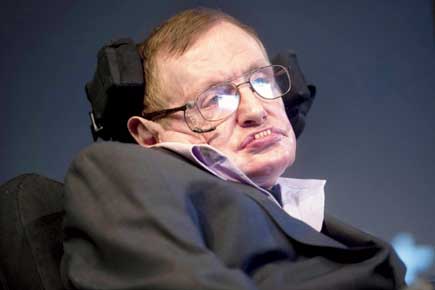The discovery of gravitational waves, or ripples in space-time, could "revolutionise astronomy", according to renowned UK physicist Stephen Hawking who congratulated scientists on their groundbreaking work.

Stephen Hawking. Pic/AFP
London: The discovery of gravitational waves, or ripples in space-time, could "revolutionise astronomy", according to renowned UK physicist Stephen Hawking who congratulated scientists on their groundbreaking work.
ADVERTISEMENT

Stephen Hawking. Pic/AFP
Hawking said the breakthrough tallied with predictions he made more than 40 years ago at Cambridge University.
In a landmark discovery for physics and astronomy, scientists on Thursday said they have glimpsed the first direct evidence of gravitational waves, ripples in the fabric of space-time that Albert Einstein predicted a century ago.
Revolutionary potential
"Gravitational waves provide a completely new way of looking at the universe. The ability to detect them has the potential to revolutionise astronomy," Hawking said. "Apart from testing general relativity, we could hope to see black holes throughout the history of the universe." "We may even see relics of the very early universe during the Big Bang at the most extreme energies possible," he added.
 Subscribe today by clicking the link and stay updated with the latest news!" Click here!
Subscribe today by clicking the link and stay updated with the latest news!" Click here!







